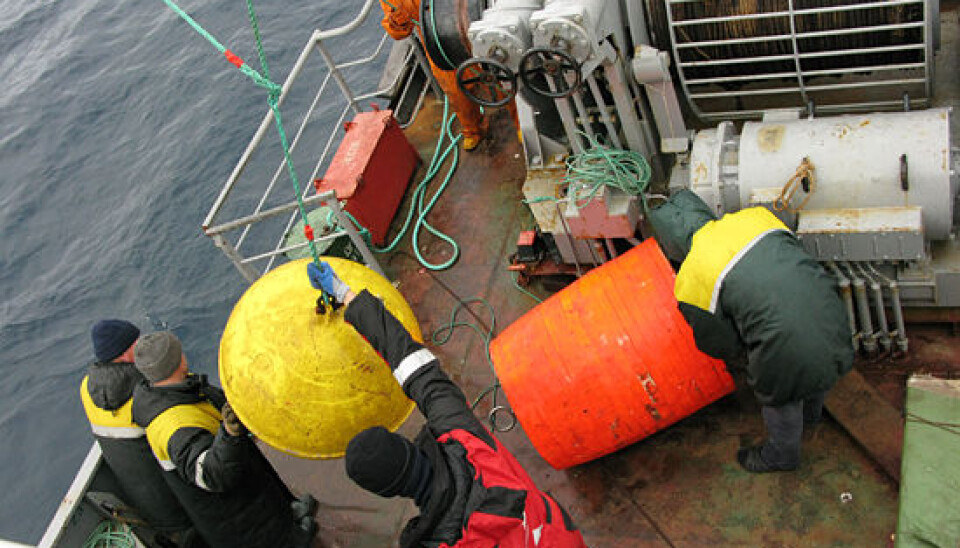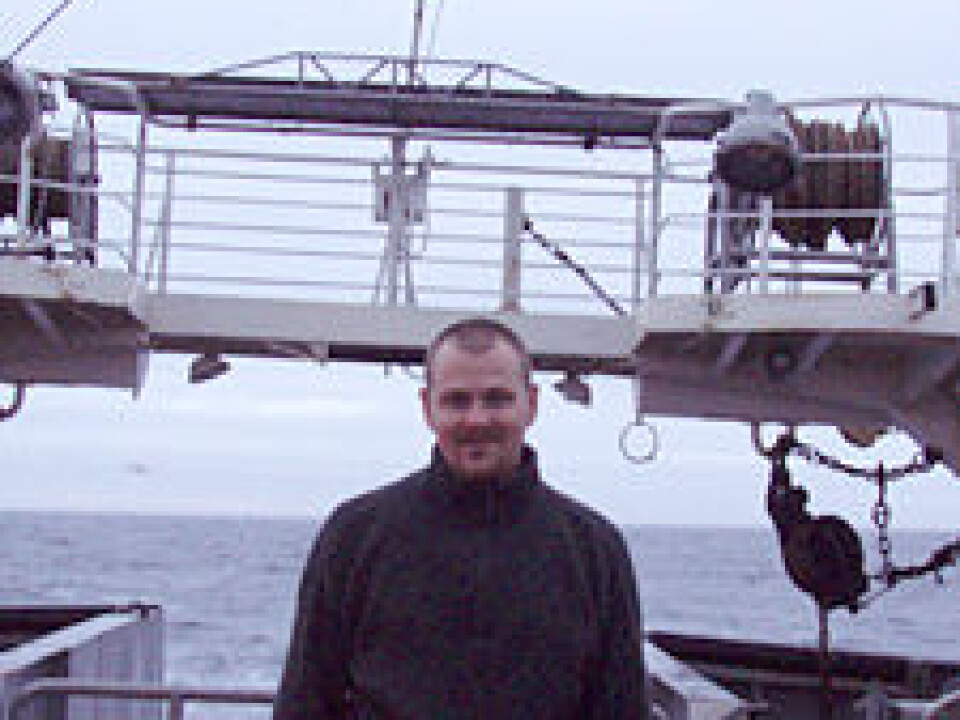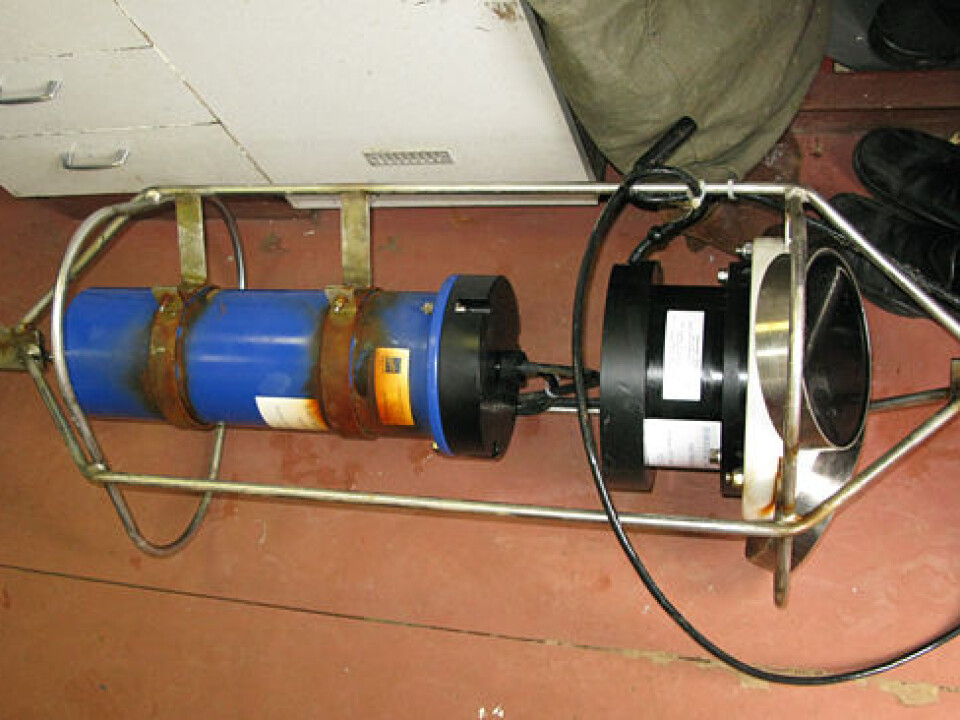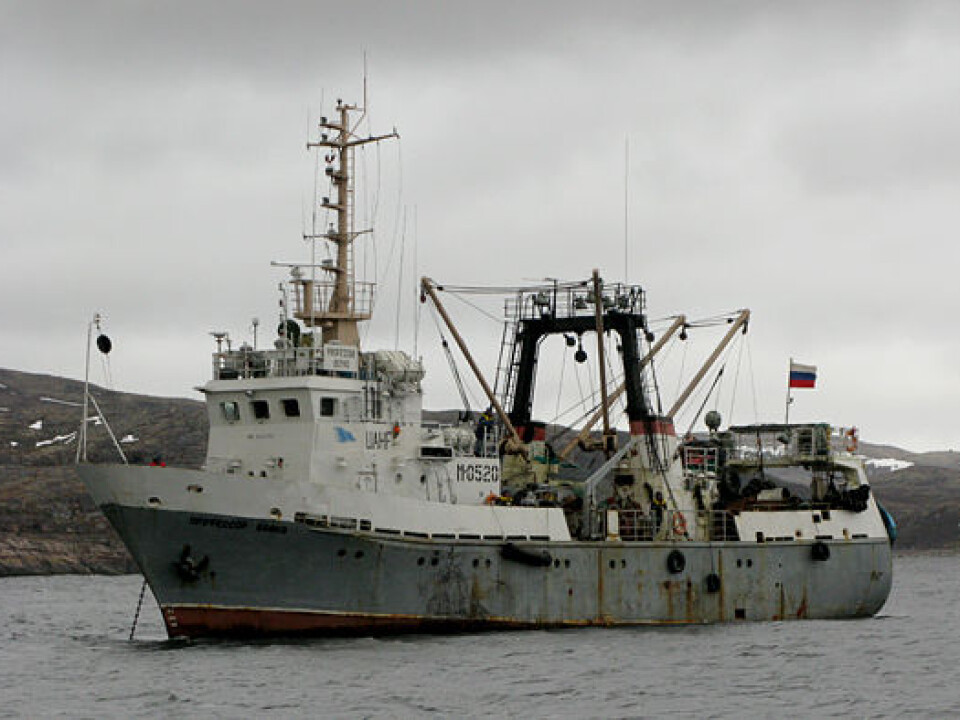This article was produced and financed by University of Bergen

Research data becomes Russian state secret
Russian authorities have seized Norwegian research data from the Barents Sea as they insist that it contains top-secret information. After three and a half years, the researchers still haven’t received their data or the equipment.
Denne artikkelen er over ti år gammel og kan inneholde utdatert informasjon.
Five oceanographic observation rigs were placed between Franz Josef’s Land and Novaya Zemlja in the Barents Sea in September 2007.
The expedition was a collaborative effort between the Institute of Marine Research, the University of Bergen (UiB) and Russian scientists at the Institute of Marine Research in Murmansk (PINRO). An officer from Russia’s Northern Fleet was also a member of the expedition.
The technical equipment was provided by the Norwegians and the Russians provided the ship and crew. This gave the Norwegians access to the Russian sector of the Barents Sea.
It was agreed that Vidar S. Lien would be given the data and the equipment after the instruments were recovered from the sea a year later. But the Russian officer had other plans. The equipment, the data and all of the security copies were to be taken to Murmansk to be examined by the Russian authorities to make sure they didn’t contain information that shouldn’t be there.

The officer assured Lien that both the data and equipment would be returned within a couple of months.
Classified information
Three and a half years later, the data and equipment still haven’t been returned to the Norwegian researcher. Russian authorities claim that it contains classified information.
"One year after the expedition, we were informed by the highest echelon of the Russian Northern Fleet, that the data had been classified as top-secret information. We have received no explanation for this", says Vidar S. Lien, who currently holds a postdoc position at the Institute of Marine Research in Bergen.
He was responsible for recovering the rigs during a 2008 expedition. The data was meant to be used in his PhD work.

The letter that the Norwegian scientists received from their Russian colleagues at PINRO states that:
“PINRO has received an official letter from Mr. Mikolay Makarov, the First Deputy Minister of Defence of the Russian Federation, which states that the Ministry has examined the data obtained during the implementation of the BIAC project and, as a result, it was found that they contained the information, which is a state secret…”
Six months after the expedition, the researchers managed to obtain some data on temperature, saline content and pressure. But the unique data containing information about the currents was never returned.
Both the Ministry of Foreign Affairs (UD) and the Ministry of Fisheries and Coastal Affairs (FKD) of Norway have been informed about the case.
Fear acoustic measurements

The five observation rigs were to collect unique data on deep-water formation. This heavy salty seawater is transported by the Gulfstream along the Norwegian coast and sinks after being cooled by the Barents Sea. Acoustic technology, which sends and receives sound, is used to measure this.
The Russian authorities have probably confiscated this equipment because the data was collected by acoustic measuring instruments. The observation rigs were placed along the main shipping lane between the Russian coast and the artic basin. The Norwegian scientists believe that the Russian authorities suspect that the data holds information on Russian military activity in the area.
"The Russian authorities probably suspect that some military activity can have been registered as acoustic equipment was used. But we have only monitored temperature, saline content and how the seawater is transported", says oceanographer Harald Loeng of the Institute of Marine Research.
He took part in a similar expedition, to this area, fifteen years ago and was the initiator of the 2007 expedition. He wanted to take new measurements with more advanced equipment at the same spot.
Unlikely monitoring
Professor Tor Gammelsrød of the Geophysical Institute thinks it unlikely that the equipment recorded any Russian military activity.
"The equipment is not designed to monitor submarines or other motorised activity. If a sub has passed by the observation rigs, then the data might contain some other information. But we would not know if it was a shoal of fish or a submarine. It would just be an abnormality", says Gammelsrød.
He led the BIAC research project which the Barents Sea expedition was part of.
Some equipment returned
When Vidar S. Lien left the boat in Northern Norway, he was promised, by the Russian naval officer, that the equipment would be returned within a couple of months. But this hasn’t yet happened.
"It’s obvious that they are unfamiliar with the equipment, and that they think that they should take some sort of action but are unsure about what to do. They confiscated monitors and two pieces of mechanical acoustic equipment. The equipment that has acoustic microphones for recording sound signals, was in fact returned to us", says Lien.
The scientists have also received the satellite senders that are fastened to the equipment, and which give warning if the anchor breaks and the equipment floats to the surface.
We have not managed to get a comment from the Russian Military or from representatives for the Northern Fleet.
Better during the cold war
Oceanographers in Bergen and Murmansk have collaborated on ecosystem investigations in the Barents Sea for more than 50 years. Norwegian and Russian scientists exchanged scientific data on fish stocks and the ecosystem in the north, throughout the entire cold war period.
"Relations with the Russian authorities were easier during the cold war. We were at any rate given clear answers. This has now become a political matter. I don’t know what the problem is and I was surprised when we were told that the data wouldn’t be returned. It’s obvious that they are for some reason or other worried about the contents", says Harald Loeng.
The expedition was approved by the Russian authorities. The agreement contains a detailed list of the equipment and exact co-ordinates regarding the placement of the equipment. The Russians were also able to check all of the equipment prior to the start of the expedition.
"The equipment will be returned eventually, but we have lost a lot of good data. The exchange of waters between the Barents Sea and Arctic Ocean is very important with regard to the climate", says Loeng.
Despair regarding data
Vidar S. Lien had to make changes to his doctorate. He did, however, manage to complete it within the time limit and believes that this was only possible because he was part of a large group of researchers.
"Other research fellows work alone and their doctorates are often a complete research project. It would have been a catastrophe if the same applied to me", says Lien.
Tor Gammelsrød says that they have lost equipment worth about 130,000 Euro. But he is most frustrated about the loss of data.
"The actual amount involved is just peanuts compared to the value of the lost data. It came as a complete surprise when it turned out that it would be difficult to get the instruments and data returned. This is important data that we are unable to get hold of. It means lost publishing points and lost research. It’s extremely disappointing", says Gammesrød.
This matter has definitely put an end to him taking part in any future collaboration in the Russian sector of the Barents Sea.
"I will not take part in any similar collaboration in the future – not after this episode", says Tor Gammelsrød.






























